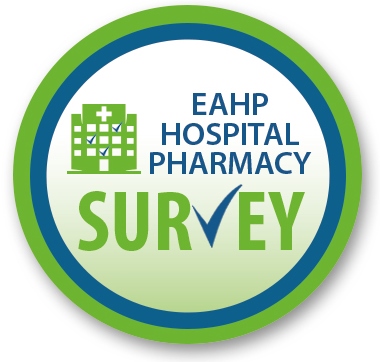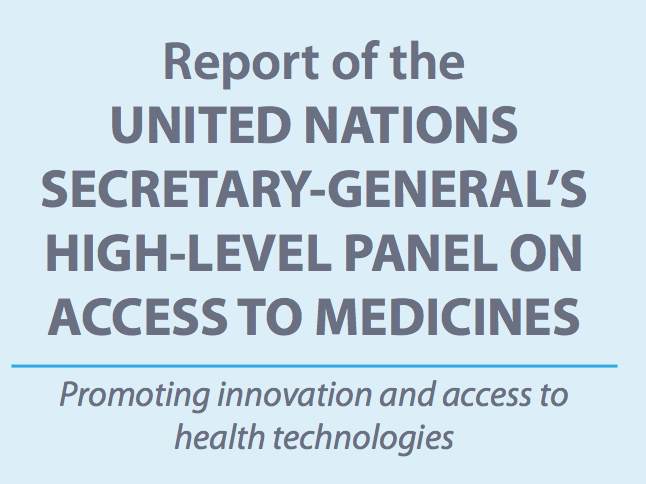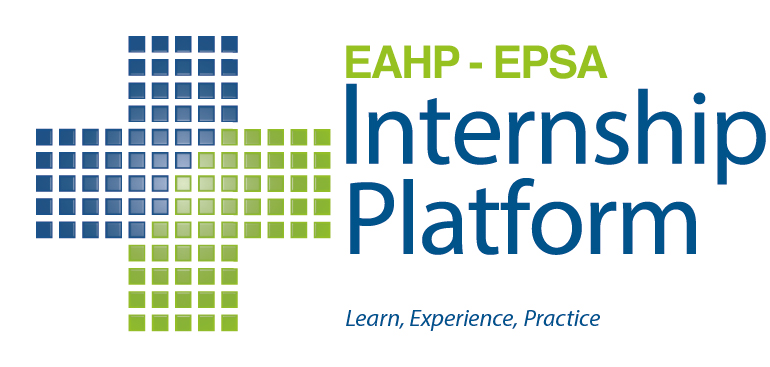 The EAHP EU Monitor is a regular round up of news relevant to hospital pharmacy in Europe.
The EAHP EU Monitor is a regular round up of news relevant to hospital pharmacy in Europe.
You can subscribe to receive the EAHP EU Monitor by email HERE.
 Clinical Pharmacy and Medicines Production the focus of EAHP’s 2016 Survey of Practice
Clinical Pharmacy and Medicines Production the focus of EAHP’s 2016 Survey of Practice
The European Association of Hospital Pharmacists (EAHP) has launched its 2016 survey of practice, aimed at assisting the implementation of the European Statements of Hospital Pharmacy across its 35 member countries.
The survey of practice provides the latest insights into the extent to which the vision for hospital pharmacy, represented by the European Statements, is being realized, and where the greatest challenges and obstacles requiring concerted attention reside.
Working in partnership with Keele University’s (United Kingdom) Centre for Medicines Optimisation, the results from the survey illuminate where national health systems experience common difficulties in achieving best practices in hospital pharmacy, and therefore give assistance to how EAHP can best pinpoint the fulfillment of its practice development mission.
The six areas of the European Statements of Hospital Pharmacy are surveyed over a two year cycle, with the 2016 survey giving attention to Sections 1 (Governance), 3 (Production and Compounding) and 4 (Clinical Pharmacy services).
The 2015 survey addressed: Selection, procurement and distribution; patient safety and quality assurance; and, Education and research. Amongst its findings were that the most challenging statements to achieve across these areas include those related to: publication of research; management of medicines shortages; and use of computerized decision support systems. The full results are available HERE.
The 2016 survey is now in the process of distribution to hospitals across Europe and responses are encouraged by the deadline of 1st November.
More information about EAHP’s Surveys of Practice HERE.
More information about the European Statements of Hospital Pharmacy HERE.

United Nations General Assembly Commits to Action on Antimicrobial Resistance
The 71st session of the United Nations (UN) General Assembly (GA) has made new global commitments to tackling antimicrobial resistance (AMR), only the fourth time a health issue has been taken up by the UN GA (the others being HIV, noncommunicable diseases, and Ebola).
Member countries of the United Nations reaffirmed their commitment to develop national action plans on AMR, based on the “Global Action Plan on Antimicrobial Resistance” — the blueprint for tackling AMR developed in 2015 by WHO in coordination with the Food and Agriculture Organization of the United Nations (FAO) and the World Organisation for Animal Health (OIE).
National leaders recognized the need for stronger systems to monitor drug-resistant infections and the volume of antimicrobials used in humans, animals, and crops, as well as increased international cooperation and funding. They pledged to strengthen regulation of antimicrobials, improve knowledge and awareness, and promote best practices — as well as to foster innovative approaches using alternatives to antimicrobials and new technologies for diagnosis and vaccines.
Leaders at the UN meeting also called on WHO, FAO and OIE, in collaboration with development banks such the World Bank and other relevant stakeholders, to coordinate their planning and actions and to report back to the UN General Assembly in September 2018.
Market failures were also highlighted, alongside calls for new incentives for investment in research and development of new, effective and affordable medicines, rapid diagnostic tests, and other important therapies to replace those that are losing their power.
UN press release HERE.
Text of Political Declaration HERE.
Commenting on the international declaration, Tajda Miharija Gala, Vice-President of EAHP and policy lead on antimicrobial resistance, remarked:
“Following the EU Council Conclusions on AMR of June 2016, this is another welcome political declaration of intent by international Governments. Now there really is no excuse for any country in Europe to be lacking in their response to the urgent health threat of antimicrobial resistance. Concerted action is required, and hospital pharmacists in all countries are ready to answer the call by helping to lead the battle for improved stewardship of antimicrobials. Evidence shows that where hospital pharmacists are given the tools and authority to take leading roles in stewardship, impressive results can be achieved.”

UN Secretary-General Report calls for bold global action to improve medicines access
A High-Level Panel convened to advise the UN Secretary-General on improving access to medicines has issued its final report urging bold new global approaches to health technology innovation to ensure more people benefit from medical advances.
Amongst the report’s calls are for governments to negotiate global agreements on the coordination, financing and development of health technologies to complement existing innovation models, including a binding Research & Development (R&D) Convention that delinks the costs of R&D from end prices.
The Panel suggests that global governments should form a working group to begin negotiating a Code of Principles for Biomedical R&D, and report annually on their progress in negotiating and implementing the Code in preparation for negotiating the Convention.
The Panel also recommended requiring manufacturers and distributors of health technologies to disclose these costs and the details of any public funding received in the development of health technologies, including tax credits, subsidies, and grants.
The Panel recommended that the UN General Assembly convene a Special Session “no later than 2018 on health technology innovation and access to agree on strategies and an accountability framework that will accelerate efforts towards promoting innovation and ensuring access in line with the 2030 Agenda for Sustainable Development“.
More information HERE.

EJHP: clinical pathways and prevention of osteoporotic fractures
The online first edition of the European Journal of Hospital Pharmacy (EJHP) has published a short report of a study investigating the utility of a clinical pathway, in respect to improving the identification and treatment of osteoporosis, and preventing secondary fractures. The pathway was coordinated and evaluated by a clinical pharmacist. The study was conducted at the orthopaedic unit of the general hospital AZ Sint-Jan Brugge-Oostende AV (Belgium).
More information HERE.

Is your hospital participating in the EAHP-EPSA Internship Platform?
Your hospital can advertise placements for international pharmacy students today!
More information HERE.
 Reminder – Cannes Congress Abstract deadline is Sunday 16th October!
Reminder – Cannes Congress Abstract deadline is Sunday 16th October!
Share your work with the world! Make sure not to miss the deadline for submitting your abstract to the EAHP Congress in Cannes (22nd-24th March 2016)!
HERE.























 The EAHP EU Monitor is a regular round up of news relevant to hospital pharmacy in Europe.
The EAHP EU Monitor is a regular round up of news relevant to hospital pharmacy in Europe. Clinical Pharmacy and Medicines Production the focus of EAHP’s 2016 Survey of Practice
Clinical Pharmacy and Medicines Production the focus of EAHP’s 2016 Survey of Practice



 Reminder – Cannes Congress Abstract deadline is Sunday 16th October!
Reminder – Cannes Congress Abstract deadline is Sunday 16th October!
